Can Aromatherapy Lower Blood Pressure
Are you curious about the benefits of aromatherapy and how it can potentially lower blood pressure?
In this article, we will explore the world of aromatherapy, including how it works and the essential oils commonly used.
Specifically, we will focus on how aromatherapy may help in reducing blood pressure, supported by studies and practical tips on incorporating aromatherapy into your daily routine.
Stay tuned to learn more about the potential benefits and risks of aromatherapy for your overall well-being.
Key Takeaways:
What Is Aromatherapy?
Aromatherapy is a holistic healing treatment that uses natural plant extracts, known as essential oils, to promote health and well-being. These essential oils are extracted from various parts of plants, including flowers, leaves, and roots, and are believed to possess therapeutic properties.
Aromatherapy has been practiced for centuries and traces its origins back to ancient civilizations like the Egyptians, Greeks, and Romans, who used fragrant oils for medicinal and spiritual purposes. In modern times, aromatherapy has gained popularity for its ability to relieve stress, enhance mood, and even alleviate certain physical ailments. By inhaling or applying these oils topically, individuals can experience a range of benefits, from improved sleep and relaxation to pain relief and immune system support.
How Does Aromatherapy Work?
Aromatherapy works through the inhalation or topical application of essential oils, which then interact with the body’s limbic system and affect the central nervous system. The scents of these oils have the ability to trigger various responses in the brain, influencing emotions, moods, and even physiological functions like heart rate and blood pressure.
Essential oils contain volatile molecules that are easily absorbed through the respiratory system or the skin, leading to a direct impact on the body. When these molecules enter the body, they can stimulate the release of neurotransmitters such as serotonin and endorphins, promoting a sense of relaxation and well-being.
The olfactory receptors in the nose play a crucial role in transmitting signals to the brain, allowing for the emotional and physiological responses associated with specific scents. This phenomenon explains why certain aromas can evoke memories or create a sense of calmness.
What Are The Essential Oils Used In Aromatherapy?
Essential oils commonly used in aromatherapy include lavender, ylang ylang, bergamot, rose, frankincense, jasmine, and peppermint. These oils are known for their distinct scents and therapeutic properties, making them popular choices in aromatherapy practices.
Each essential oil brings its unique set of benefits and therapeutic effects.
- Lavender oil is renowned for its calming and relaxing properties, often used to promote better sleep and reduce anxiety.
- Ylang ylang oil is prized for its aphrodisiac qualities and mood-enhancing abilities.
- Bergamot oil is uplifting and refreshing, ideal for reducing stress and enhancing mood.
Rose oil is associated with emotional balance and skin rejuvenation. Frankincense oil is revered for its grounding and spiritual qualities, often used in meditation practices. Jasmine oil is known for its antidepressant and aphrodisiac effects, promoting positive emotions and sensuality. Peppermint oil, with its invigorating aroma, is commonly used for its cooling and soothing properties, aiding in digestion and easing headaches.
Lavender Oil
Lavender oil is one of the most popular essential oils used in aromatherapy due to its calming and relaxing properties. It is often employed to reduce stress, promote relaxation, and improve sleep quality through its soothing aroma.
Research has shown that the scent of lavender oil can have a direct impact on the central nervous system, helping to lower cortisol levels, the hormone responsible for stress. This hormone reduction leads to a more relaxed state of mind and body, making it an effective tool in managing anxiety and tension. The calming effects of lavender oil are also linked to improved sleep patterns and overall sleep quality, with studies indicating that inhaling the scent before bedtime can promote a deeper, more restful slumber.
Ylang Ylang Oil
Ylang ylang oil is known for its floral and sweet fragrance, making it a popular choice in aromatherapy for its stress-relieving and mood-enhancing properties. This essential oil has been studied for its potential to reduce hypertension and lower heart rate, contributing to its use in promoting cardiovascular health.
Research has shown that the scent of ylang ylang oil helps in reducing stress levels and anxiety, making it a great natural remedy for those dealing with daily pressures. The aroma of ylang ylang is believed to have a calming effect on the nervous system, promoting relaxation and a sense of well-being.
Furthermore, ylang ylang oil is known to have aphrodisiac properties, enhancing mood and increasing feelings of sensuality and intimacy. Incorporating this essential oil into your aromatherapy routine can uplift your spirits and create a more harmonious environment.
Bergamot Oil
Bergamot oil is cherished in aromatherapy for its citrusy and uplifting aroma, known to alleviate stress, anxiety, and improve mood. Its versatility extends to being used as a massage oil, offering both emotional and physical relaxation benefits.
When inhaled through diffusers or added to bathwater, bergamot oil can help calm the mind and promote a sense of well-being. The oil’s natural properties work by reducing cortisol levels in the body, which are closely linked to stress. Incorporating bergamot oil into massage sessions can aid in easing muscle tension and providing a soothing experience.
Rose Oil
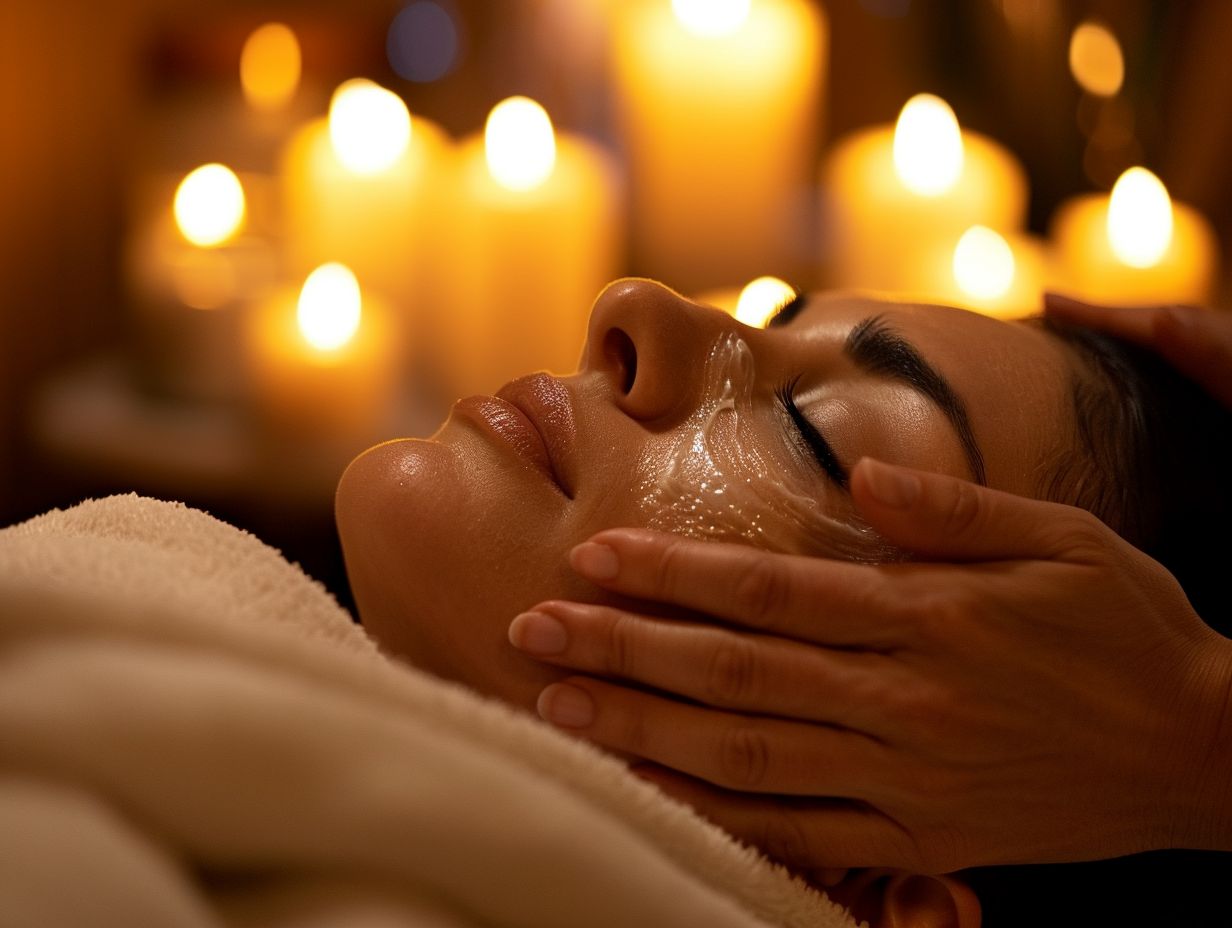
Rose oil, with its rich floral scent, is valued in aromatherapy for its ability to balance emotions, reduce stress, and support heart health. This essential oil is often included in blends targeting cardiovascular wellness and emotional harmony, making it a versatile choice for holistic healing.
Aromatherapists often incorporate rose oil into their practices due to its profound impact on emotional well-being. The gentle yet potent aroma of rose oil helps alleviate feelings of anxiety and promote relaxation, creating a calming atmosphere. When inhaled, the scent of rose oil is believed to reduce cortisol levels, the hormone associated with stress, resulting in a sense of tranquility.
The cardiovascular benefits of rose oil are not to be overlooked. Studies suggest that inhaling rose oil can help lower blood pressure and reduce heart rate, supporting overall heart health. By blending rose oil with other complementary essential oils such as lavender or frankincense, individuals can create synergistic blends that promote both emotional balance and cardiovascular wellness.
Frankincense Oil
Frankincense oil, known for its woody and earthy aroma, is a popular choice in aromatherapy for promoting relaxation, aiding in meditation practices, and reducing inflammation. Research suggests that frankincense oil may have anti-inflammatory properties, making it beneficial for holistic health.
One of the key compounds found in frankincense oil, alpha-pinene, has been linked to its calming effects on the body and mind. This aromatic oil has been traditionally used in various cultures for its ability to induce a sense of tranquility and peace.
Studies have shown that inhaling frankincense oil can help reduce levels of anxiety-inducing chemicals in the brain, leading to a more relaxed state. The anti-inflammatory properties of frankincense oil have been investigated for their potential in managing conditions such as arthritis and asthma.
Jasmine Oil
Jasmine oil, prized for its sweet and exotic fragrance, is renowned in aromatherapy for its relaxation-inducing and stress-relieving properties. This essential oil is often used to promote quality sleep, alleviate anxiety, and combat stress, offering both emotional and physical well-being benefits.
One of the reasons behind jasmine oil’s efficacy in stress reduction and sleep promotion lies in its ability to stimulate the brain’s limbic system, triggering a sense of calm and relaxation. The tranquil scent of jasmine can help lower heart rate and blood pressure, aiding in stress management. Its floral aroma not only soothes the mind but also promotes better sleep quality by creating a serene environment.
Jasmine oil’s natural sedative properties make it an effective remedy for anxiety, allowing individuals to unwind and find inner peace amidst daily pressures. Incorporating jasmine oil in aromatherapy routines can contribute to a holistic approach to wellness, balancing emotional states and fostering a restful night’s sleep.
Peppermint Oil
Peppermint oil, known for its invigorating and fresh scent, is valued in aromatherapy for enhancing alertness, improving focus, aiding digestion, and providing relief from headaches. This essential oil is versatile in its applications, offering both cognitive and physical health benefits.
One of the key aspects that make peppermint oil stand out in the realm of aromatherapy is its remarkable ability to boost mental clarity and alertness. When diffused or inhaled, the scent of peppermint oil stimulates the senses, helping to improve cognitive function and sharpen focus. Moreover, peppermint oil aids in soothing digestive discomfort, making it a valuable tool for individuals dealing with issues such as bloating or indigestion. It is widely used to alleviate headaches, with its cooling properties providing relief and promoting overall well-being.
Can Aromatherapy Lower Blood Pressure?
Aromatherapy has shown promise in lowering blood pressure and managing hypertension, offering a natural and holistic approach to support cardiovascular health. Research studies have indicated the potential benefits of specific essential oils in reducing blood pressure levels and mitigating the risk of cardiovascular diseases.
For instance, a study published in the Journal of Clinical Hypertension found that inhaling lavender essential oil for 15 minutes significantly decreased systolic blood pressure in participants with hypertension. Similarly, a meta-analysis conducted by the European Journal of Preventive Cardiology suggested that inhaling rose essential oil may help to reduce blood pressure levels by promoting relaxation and reducing stress.
How Does Aromatherapy Lower Blood Pressure?
Aromatherapy aids in lowering blood pressure by influencing the body’s autonomic nervous system, which regulates heart rate and blood pressure. Through the inhalation of specific essential oils, aromatherapy can promote relaxation, reduce stress, and enhance cardiovascular function, leading to blood pressure reduction.
Aromatherapy operates by engaging with the limbic system, a part of the brain that plays a key role in regulating emotions and stress responses. When essential oils are inhaled, they trigger olfactory receptors, sending signals to the brain that can induce a calming effect.
This process leads to the release of neurotransmitters such as serotonin and dopamine, known for their mood-enhancing properties, contributing to stress reduction and overall well-being.
What Are The Studies Supporting The Use Of Aromatherapy For Lowering Blood Pressure?
Studies exploring the efficacy of aromatherapy in lowering blood pressure have demonstrated positive results, with certain essential oils and blends showing significant effects on blood pressure regulation. Research in the field of aromatherapy and cardiovascular health continues to uncover the potential benefits of essential oils in managing hypertension.
One notable study published in the Journal of Alternative and Complementary Medicine found that inhaling lavender essential oil for 15 minutes resulted in a significant decrease in systolic and diastolic blood pressure in hypertensive participants. Similarly, a meta-analysis in the International Journal of Nursing Studies highlighted the calming effect of bergamot oil, leading to lowered blood pressure levels.
The use of ylang ylang essential oil in aromatherapy massage has also shown promise in reducing stress and anxiety, contributing to overall cardiovascular health. These findings suggest the potential for incorporating aromatherapy techniques, such as diffusing frankincense or cedarwood oil, into standard hypertension management protocols.
How To Use Aromatherapy For Lowering Blood Pressure?
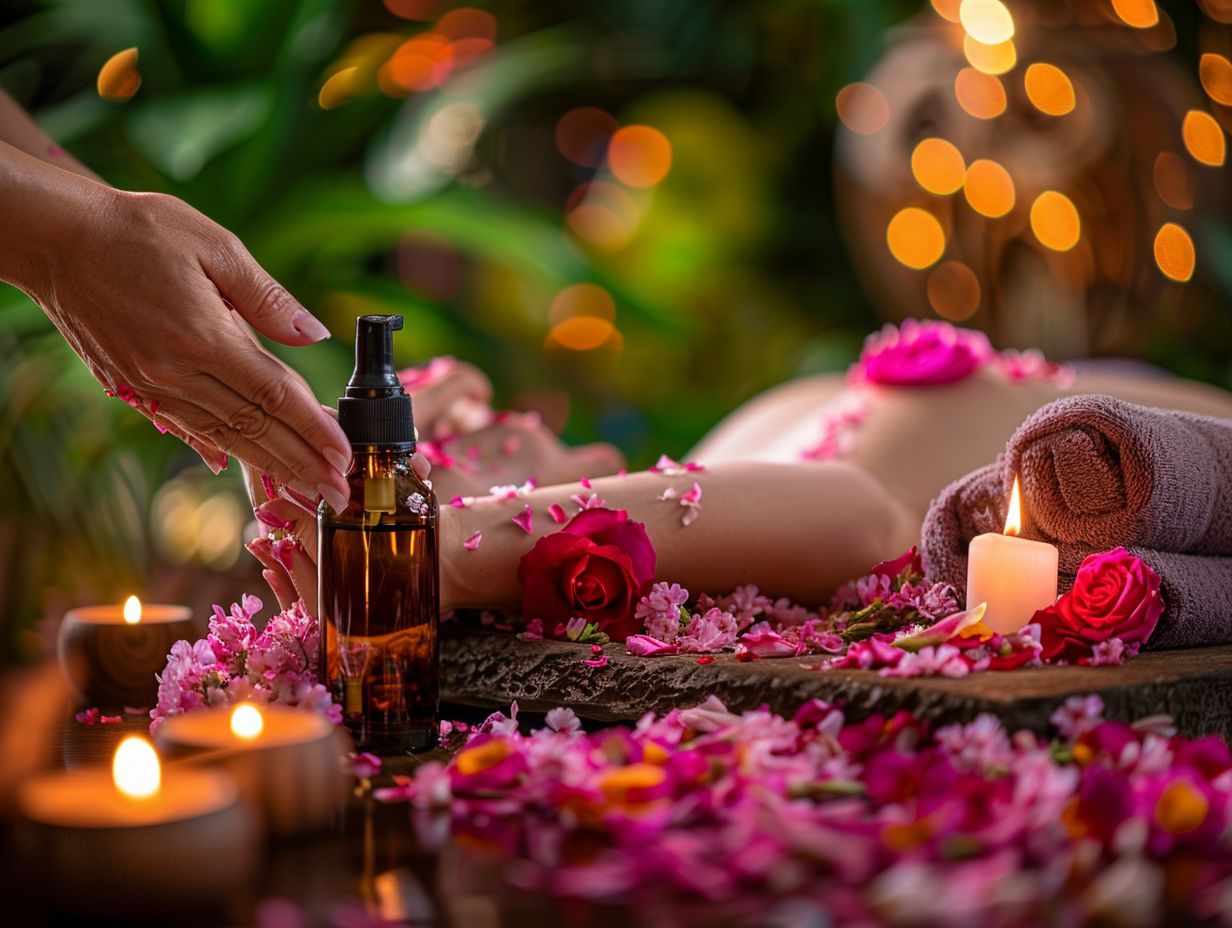
Aromatherapy can be utilized for lowering blood pressure through various methods such as inhalation, topical application, aromatherapy massage, and aromatherapy baths. Each of these approaches offers unique benefits in promoting relaxation, reducing stress, and supporting cardiovascular health.
One effective way to incorporate aromatherapy into your routine for managing blood pressure is through inhalation. Simply add a few drops of calming essential oils like lavender or chamomile to a diffuser or inhale directly from the bottle. This method allows the therapeutic properties of the oils to enter your system quickly, helping to soothe your mind and body.
Inhalation
Inhalation of essential oils like lavender can effectively lower blood pressure by inducing relaxation and calming the nervous system. Aromatherapy inhalation techniques have been shown to positively impact heart rate and stress levels, contributing to overall cardiovascular well-being.
One of the key benefits of using inhalation as a method for aromatherapy is that it allows for quick absorption of the essential oils into the bloodstream through the respiratory system, leading to almost immediate effects on the body. The inhalation of lavender oil, for example, triggers the release of chemicals in the brain, such as serotonin and dopamine, which are responsible for promoting feelings of calmness and reducing anxiety.
Incorporating inhalation techniques into your daily routine is simple and convenient. You can add a few drops of lavender oil to a diffuser or inhaler, or even create a personal inhalation blend by combining lavender with other relaxing oils like chamomile or bergamot. Inhaling these soothing scents for just a few minutes each day can help you unwind, destress, and regulate your blood pressure levels naturally.
Topical Application
Topical application of essential oils through massage can aid in lowering blood pressure by promoting circulation, relaxation, and stress relief. Oils like ylang ylang, known for their calming properties, can be effectively used in massage blends to support cardiovascular health and reduce hypertension.
When ylang ylang oil is applied topically during a massage, its aromatic compounds stimulate the olfactory system, triggering a cascade of physiological responses. This includes the release of endorphins and serotonin, which help to relax the body and lower stress levels, subsequently contributing to a decrease in blood pressure. The massage action itself helps to improve blood flow, aiding in the efficient distribution of oxygen and nutrients throughout the body.
Aromatherapy Massage
Aromatherapy massage is a popular method for lowering blood pressure by combining the benefits of essential oils with therapeutic touch. This holistic approach to massage can enhance relaxation, reduce stress, and optimize cardiovascular function, contributing to overall well-being.
Essential oils like lavender, rosemary, and chamomile are commonly used in aromatherapy massages for their calming and stress-relieving properties. When these oils are absorbed through the skin and inhaled, they can have a direct impact on the nervous system, promoting a sense of calm and relaxation.
Massage techniques such as gentle strokes, circular movements, and acupressure points are often incorporated to further enhance the therapeutic effects of the essential oils. The combination of aromatherapy and massage helps to dilate blood vessels, improve circulation, and reduce hypertension.
For optimal outcomes, it is recommended to consult with a certified aromatherapist or massage therapist to customize the treatment according to individual needs and preferences. Regular sessions of aromatherapy massage can not only aid in managing blood pressure but also contribute to overall mental and physical well-being.
Aromatherapy Bath
Aromatherapy baths can be beneficial for lowering blood pressure by creating a calming and stress-relieving environment. Essential oil blends like lavender and bergamot can be added to bath water to induce relaxation, reduce anxiety, and support cardiovascular well-being.
The inhalation of these aromatic oils during a bath can have a direct impact on the limbic system in the brain, which controls emotions and stress responses.
The warmth of the bathwater itself helps to dilate blood vessels, improving circulation and potentially aiding in blood pressure regulation.
To enhance your aromatherapy bath experience, consider using a few drops of frankincense oil to promote deep relaxation or a blend of sandalwood and ylang-ylang for a grounding effect.
Are There Any Risks Or Side Effects Of Aromatherapy?
While aromatherapy is generally safe when used appropriately, there are potential risks and side effects associated with certain essential oils. Skin irritation, allergic reactions, and respiratory issues may occur in sensitive individuals, emphasizing the importance of proper dilution and cautious application of essential oils.
It is crucial to conduct a patch test before using any essential oil to check for potential skin reactions. Diluting essential oils with a carrier oil such as coconut or jojoba oil can help reduce the risk of skin irritation. Individuals with respiratory conditions like asthma should be extra cautious when using strong-smelling oils as they may trigger respiratory distress.
Pregnant women, children, and pets should consult with a healthcare professional before using essential oils, as certain oils can be harmful during pregnancy or to pets. Proper ventilation in the room during aromatherapy sessions is vital to prevent respiratory issues.
When Should You Avoid Aromatherapy?
It is essential to avoid aromatherapy in certain circumstances, including allergies or sensitivities to specific essential oils, respiratory conditions, skin disorders, and during pregnancy or breastfeeding. Individuals with underlying medical conditions should consult healthcare professionals before incorporating aromatherapy into their wellness routines.
For individuals with known allergies or sensitivities, it is crucial to perform patch tests before using any new essential oil, to rule out potential adverse reactions. Those with respiratory issues such as asthma or chronic obstructive pulmonary disease (COPD) should be cautious as certain strong scents can trigger respiratory distress.
During pregnancy and breastfeeding, it’s recommended to avoid certain essential oils that may have uterine stimulating effects or could be passed to the baby through breast milk. Consulting with a qualified aromatherapist or a healthcare provider knowledgeable about essential oils is wise to ensure safety.
Frequently Asked Questions
Can aromatherapy effectively lower blood pressure?
Yes, studies have shown that certain essential oils used in aromatherapy can help reduce both systolic and diastolic blood pressure levels.
Which essential oils are known to have a positive effect on blood pressure?
Lavender, ylang-ylang, clary sage, and bergamot are some of the most commonly used essential oils for lowering blood pressure.
How does aromatherapy work to lower blood pressure?
Aromatherapy works by stimulating the olfactory system, which sends signals to the brain to regulate the body’s response to stress. This can help reduce tension and promote relaxation, leading to lower blood pressure.
Can aromatherapy be used as a standalone treatment for high blood pressure?
No, aromatherapy should not be used as the sole treatment for high blood pressure. It is best used as a complementary therapy along with other lifestyle changes and medication prescribed by a doctor.
Are there any potential side effects of using aromatherapy for blood pressure?
In general, aromatherapy is considered safe when used properly. However, some people may experience skin irritation or allergic reactions to certain essential oils. It is important to dilute essential oils properly and patch test them before use.
Can pregnant women or individuals with certain medical conditions use aromatherapy for blood pressure?
Pregnant women and individuals with medical conditions should consult with their doctor before using aromatherapy for blood pressure management. Some essential oils may not be safe for use during pregnancy or may interact with certain medications.

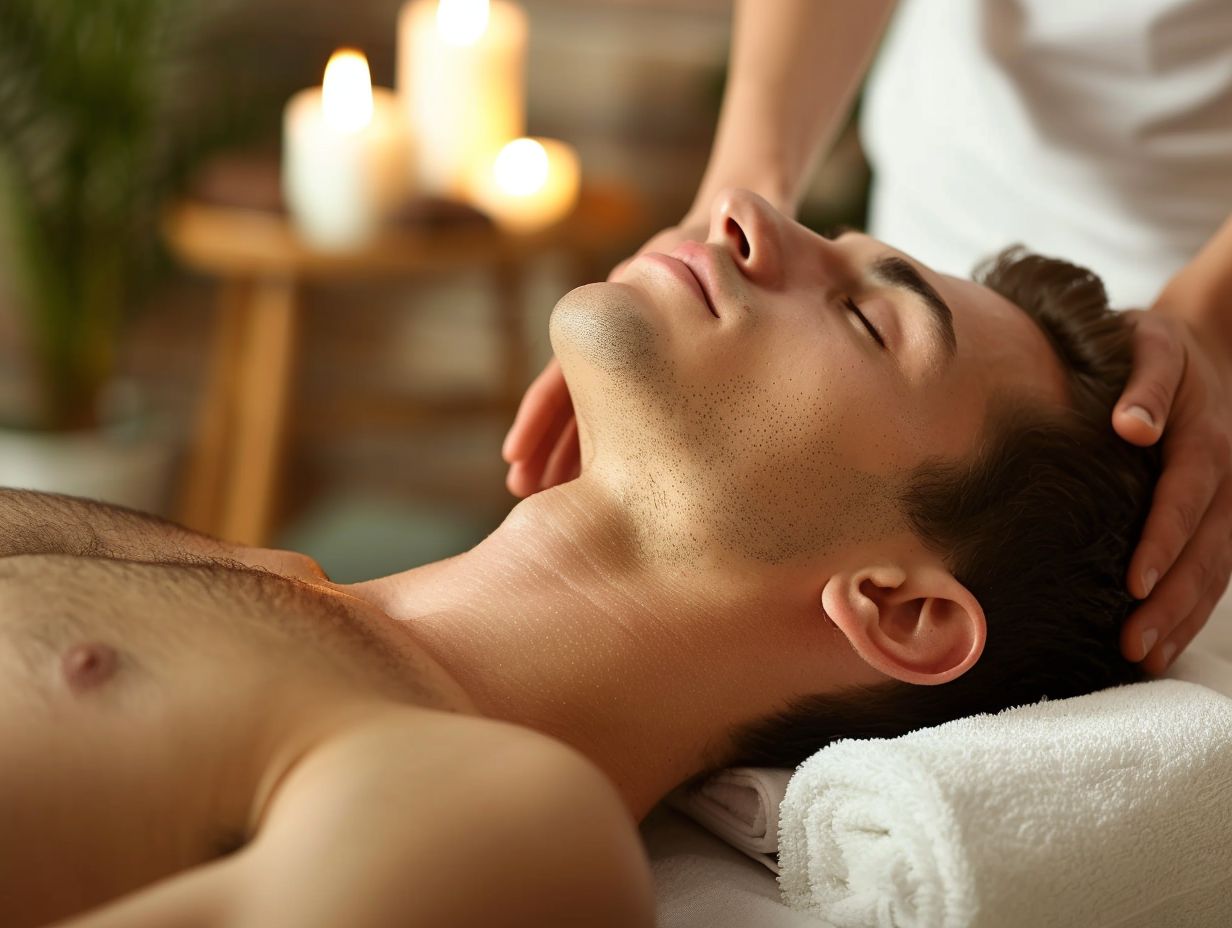
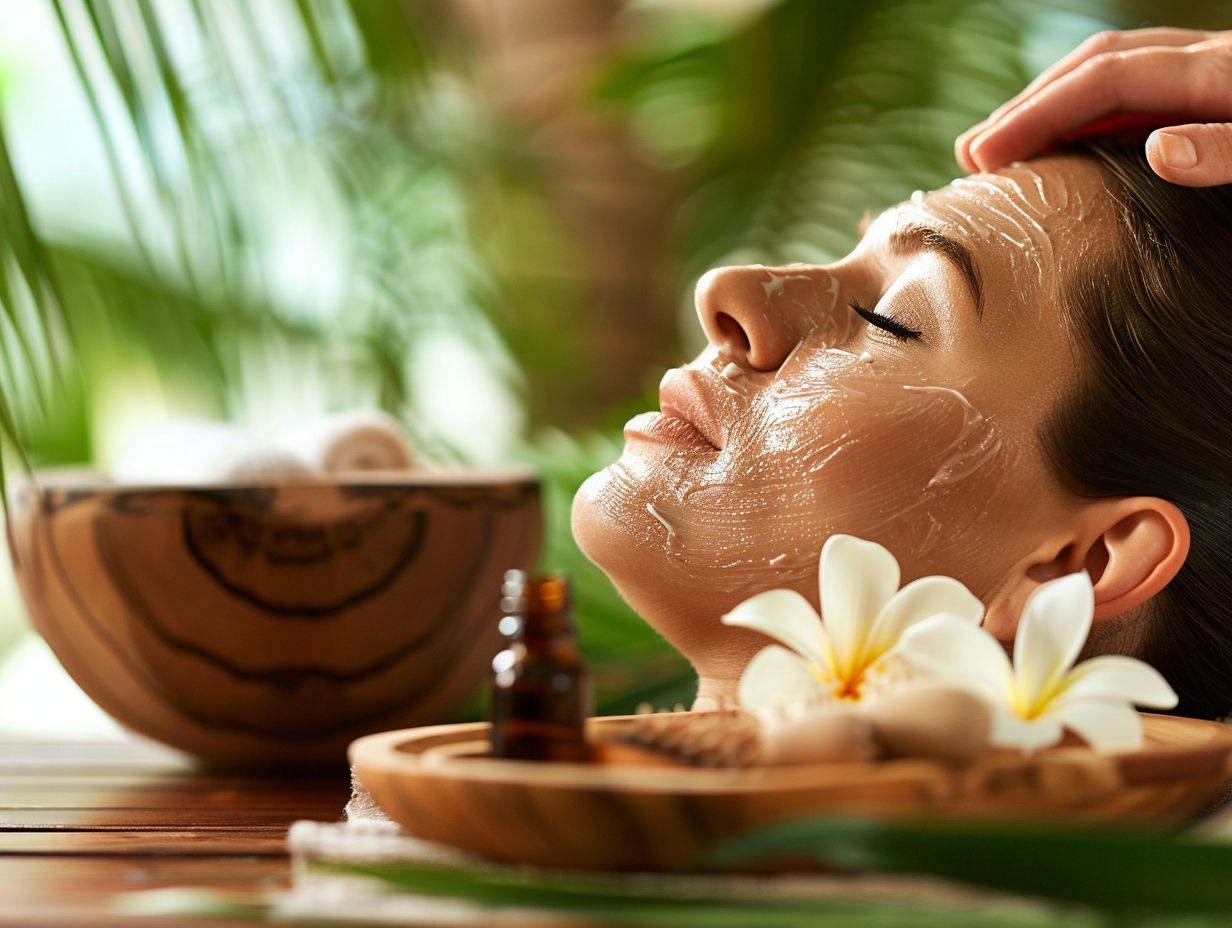
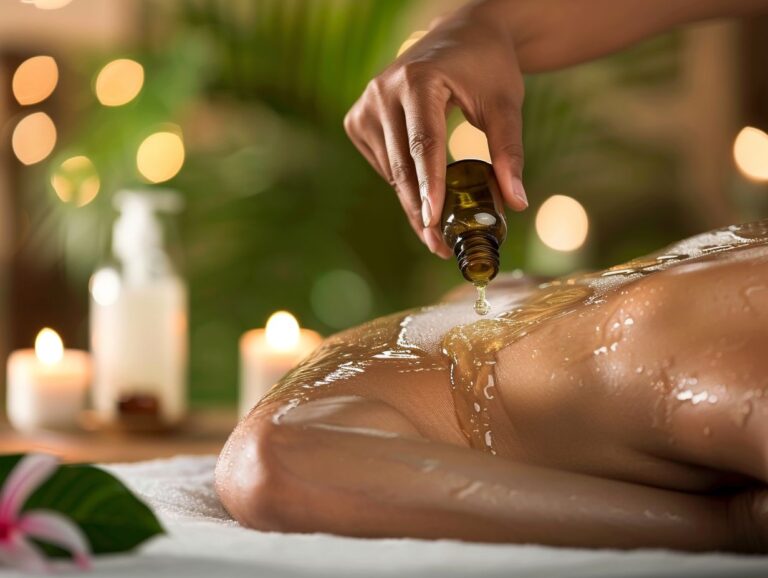

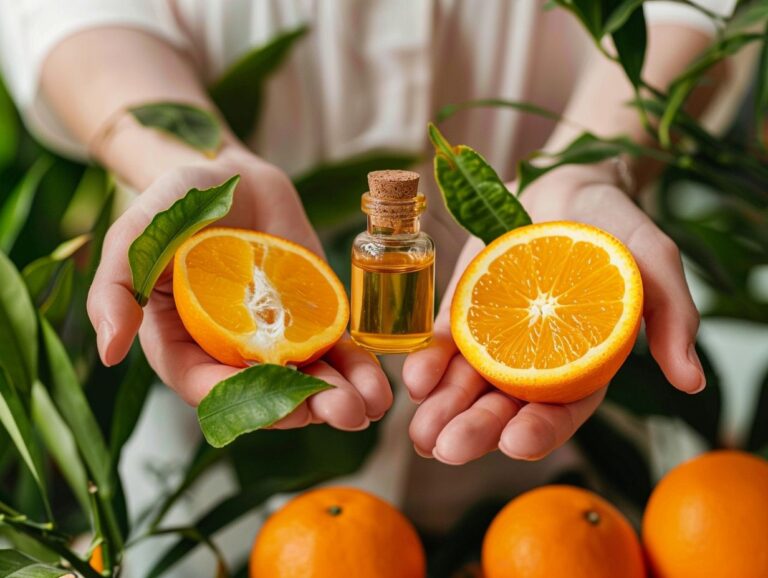

One Comment